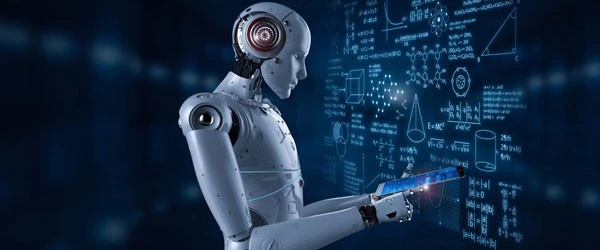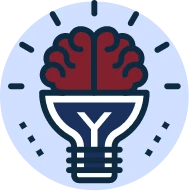
The B Tech in Artificial Intelligence at IILM University stands out for its forward-thinking curriculum, blending strong theoretical foundations with hands-on exposure to emerging AI technologies. The programme empowers students to explore domains like machine learning, computer vision, natural language processing, robotics, and data analytics through industry-aligned projects and cutting-edge research.
With a NEP-compliant curriculum, state-of-the-art AI and ML labs, and experiential learning opportunities, students gain the skills and confidence to innovate, analyse, and solve complex problems in a rapidly evolving digital landscape.
-full-full.webp)
Delivering quality education with a legacy of three decades.

A strong, supportive alumni community spread across the globe.

Partnering with renowned global institutions for a holistic education experience.

Connecting students with leading employers for rewarding careers.

Eco-friendly campuses situated in prime, accessible locations.

Recognising and rewarding academic excellence with financial support.

Learn from experts with rich academic and industry experience.

Experience an engaging and dynamic environment both inside and outside the classroom.

A curriculum designed to meet global standards of education and practice.

Apply the knowledge of mathematics, science, engineering fundamentals, and an engineering specialisation to solve complex engineering problems.

Identify, formulate, review research literature, and analyse complex engineering problems, reaching substantiated conclusions using first principles of mathematics, natural sciences, and engineering sciences.

Design solutions for complex engineering problems and system components or processes that meet specified needs, with appropriate consideration for public health and safety, and cultural, societal, and environmental factors.

Use research-based knowledge and research methods, including the design of experiments, analysis and interpretation of data, and synthesis of information, to provide valid conclusions.

Create, select, and apply appropriate techniques, resources, and modern engineering and IT tools, including prediction and modelling, to complex engineering activities, with an understanding of their limitations.

Apply reasoning informed by contextual knowledge to assess societal, health, safety, legal, and cultural issues, and the consequent responsibilities relevant to professional engineering practice.

Understand the impact of professional engineering solutions in societal and environmental contexts, and demonstrate knowledge of, and the need for, sustainable development.

Apply ethical principles and commit to professional ethics, responsibilities, and norms of engineering practice.

Function effectively as an individual, and as a member or leader in diverse teams and multidisciplinary settings.

Communicate effectively on complex engineering activities with the engineering community and with society at large, including comprehending and writing effective reports and design documentation, delivering presentations, and giving and receiving clear instructions.

Demonstrate knowledge and understanding of engineering and management principles and apply these to one’s own work, as a member or leader in a team, to manage projects in multidisciplinary environments.

Recognise the need for, and have the preparation and ability to engage in, independent and life-long learning in the broadest context of technological change.
Academic Qualifications
